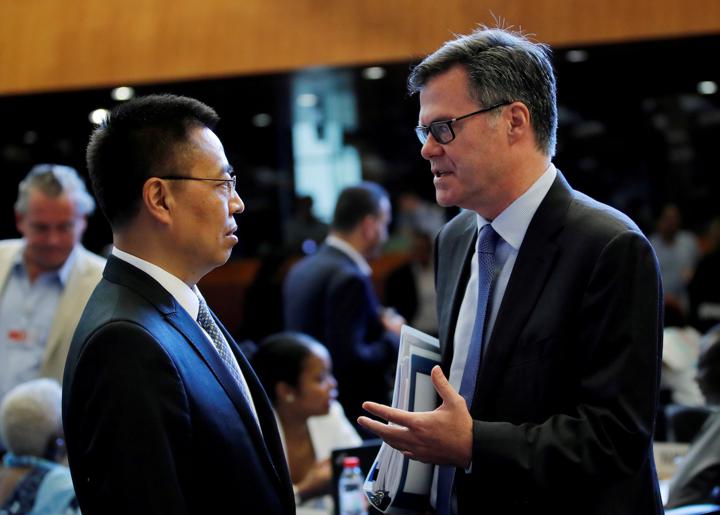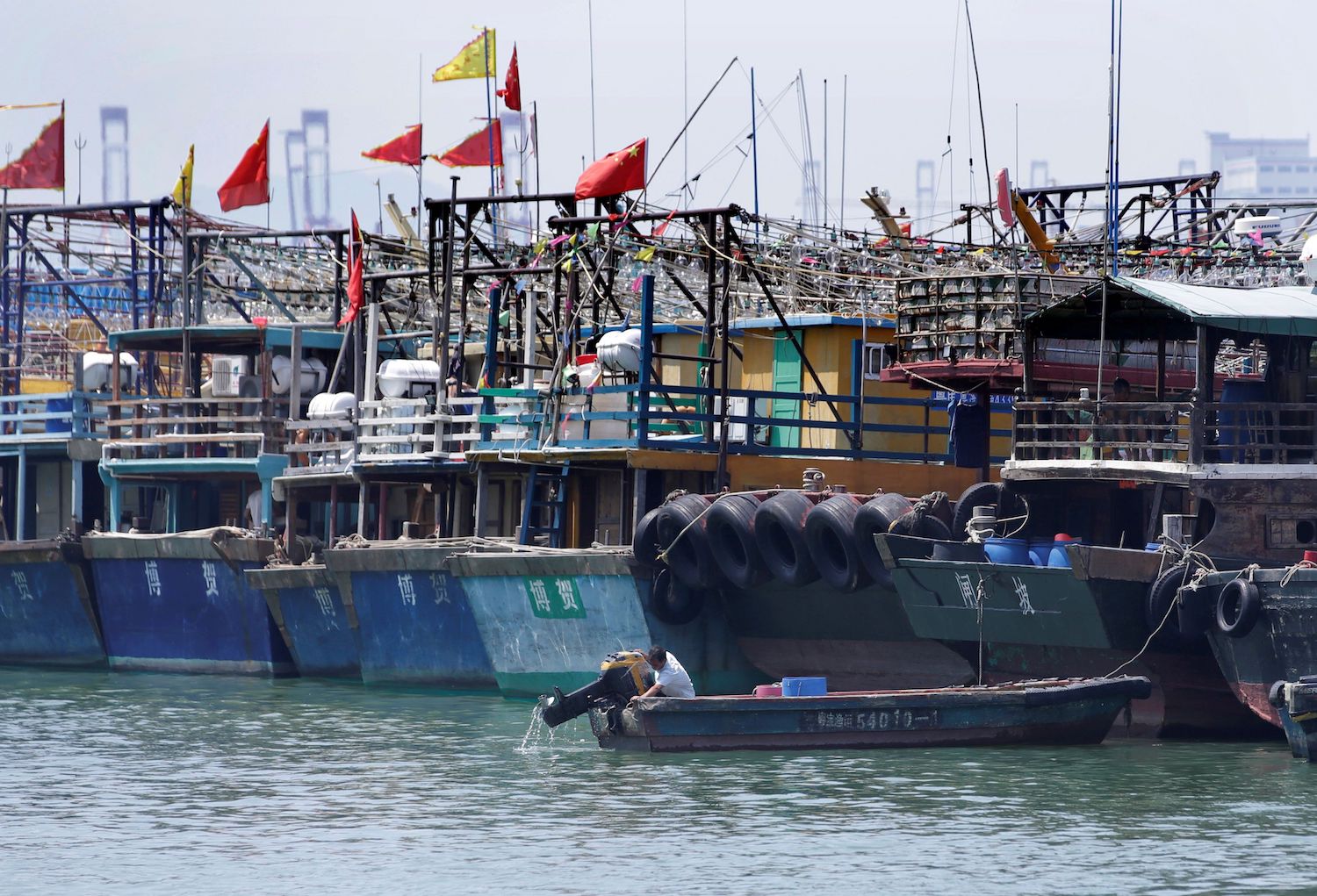GENEVA: China is ready to “fully engage” in intensive negotiations agreed on Tuesday by the World Trade Organisation to cut subsidies on fishing by year-end, sources following the talks said.
The body has been trying to reach a deal for the past 20 years on ending the subsidies which environmentalists say are contributing to a worrying decline in global fish stocks.
The WTO’s 164 members are set to start “continuous negotiations” in September based on a draft text with a view to getting a deal by December. One source said four week-long negotiating rounds were planned with all parties and other talks on the sidelines.
Historically, China has resisted pressure to accept restrictions and curb the size and range of its vast fleet, so the success of a deal is widely seen to rest on the willingness of China to take part in the talks and adhere to their outcome.
China, the European Union, the United States, South Korea and Japan are the top five subsidisers – with Beijing and Washington at odds over details over this issue, as well as their myriad other areas of friction.

Dennis Shea, right, the US Ambassador to the World Trade Organisation talks with Zhang Xiangchen, China’s Ambassador to the WTO, before the WTO’s General Council meeting in Geneva in July 2018. File photo: Denis Balibouse / Reuters.
China’s ambassador Zhang Xiangchen told the closed-door meeting he supported the timetable of work towards a deal and was “ready to fully engage in intensive negotiations”, two trade officials said.
However, Zhang also stressed the need to formulate “meaningful and effective” special and differential treatment (SDT) for developing countries such as China – an issue which is sensitive in Washington and could be a hurdle, they added.
“Suffice it to say that the SDT texts currently included, utterly undermine any beneficial effect of the draft prohibitions and will not garner a consensus,” US Ambassador Dennis Shea said in the same meeting.
Washington says it is unfair that major economies such as China claim developing status exemptions.
A paper published by Marine Policy last year estimated global subsidies at $35.4 billion in 2018, although not all of those are the so-called “harmful” ones targeted by the WTO.
“If it were just about fish, I think countries could agree,” said Remi Parmentier, strategic adviser for Friends of Ocean Action. “In the background are trade tensions.”
As well as its importance for fish stocks, a deal is seen as key to validating the WTO’s legitimacy as it navigates a reform crisis and seeks a new leader.
























